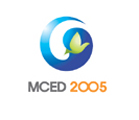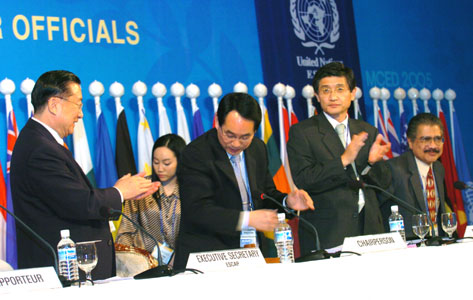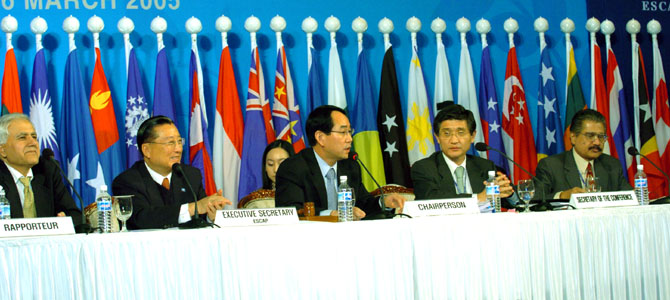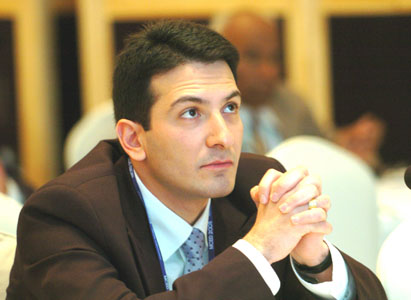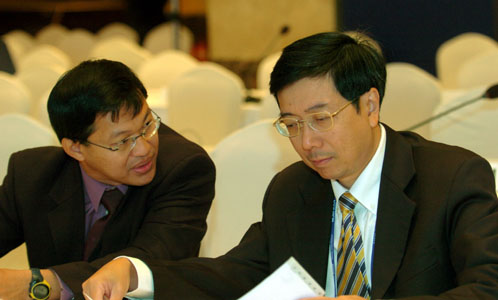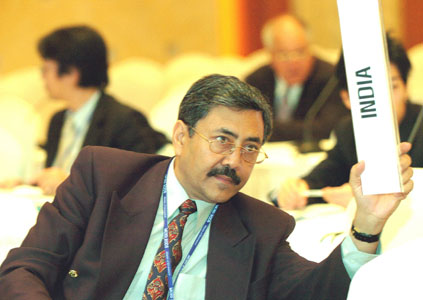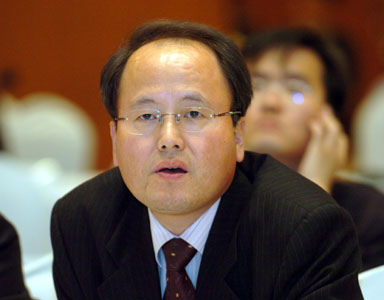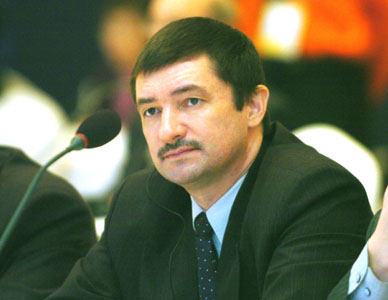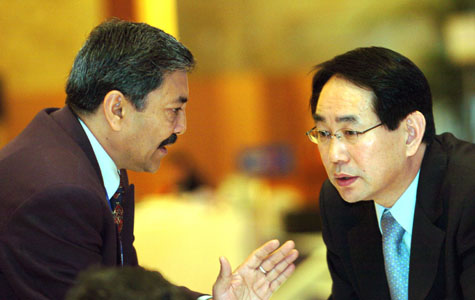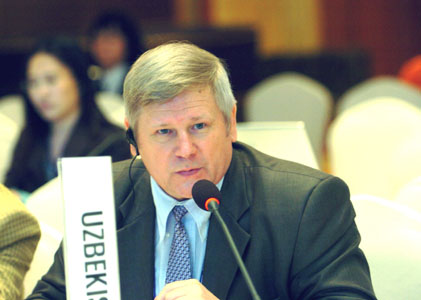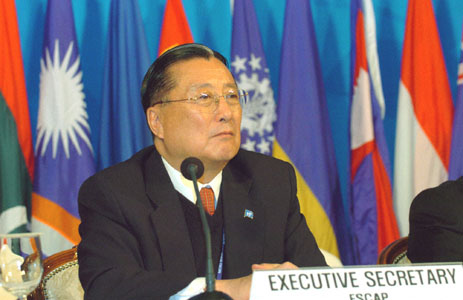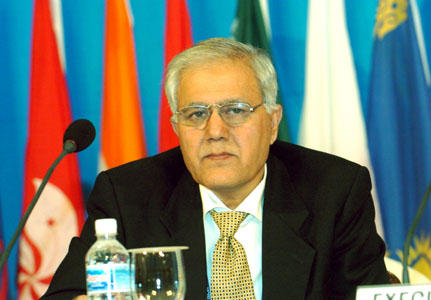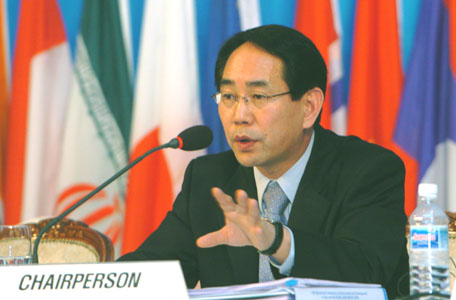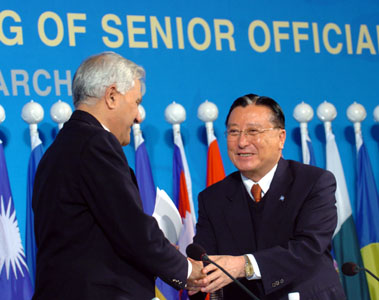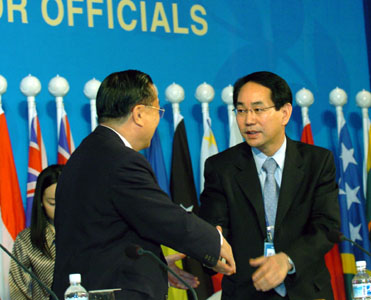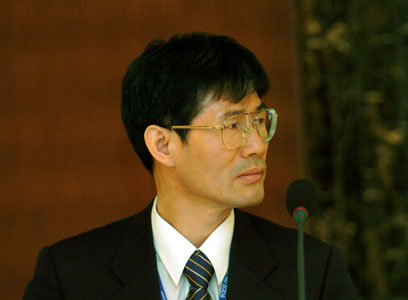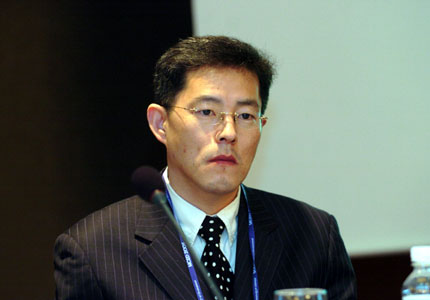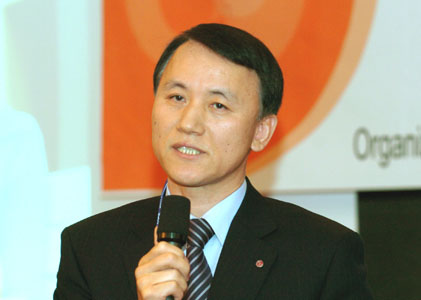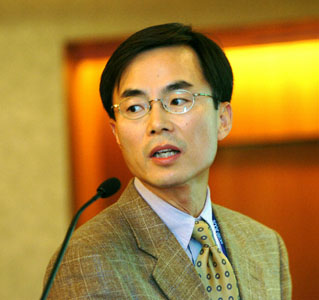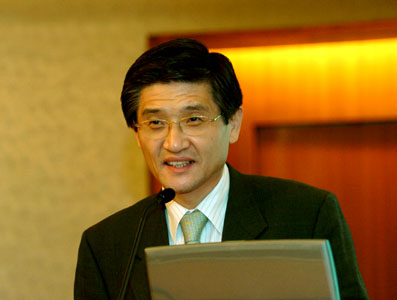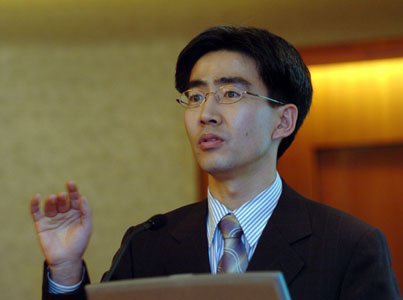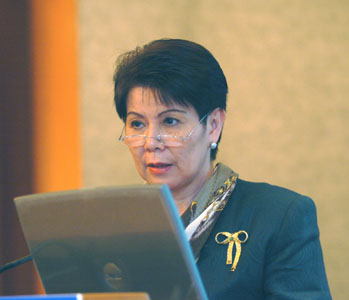|
|
|
||||||||||||||||||||||||||||||||||||||||||||
| ||||||||||||||||||||||||||||||||||||||||||||
|
|
||||||||||||||||||||||||||||||||||||||||||||
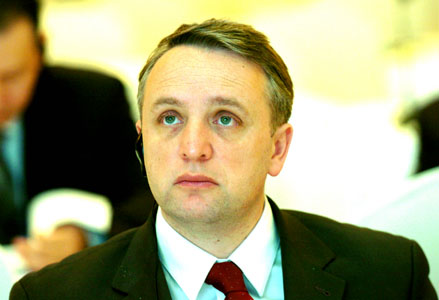 |
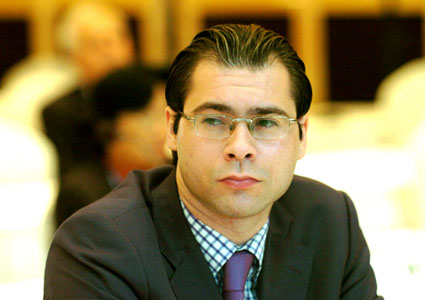 |
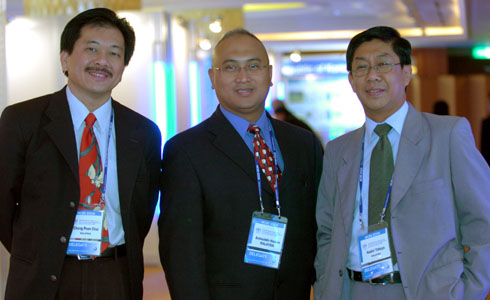 |
| Above photos L-R: Georgi Arzumanyan, Armenia; Benoit Foret, France; Rashad Novruzov, Azerbaijan; Chong Poon Chai, Aminuddin Hasim, and Nadzri Yahaya, Malaysia |
|
Ministerial
Declaration: Delegates
agreed to add a paragraph in the preamble calling
for donor countries to honor their commitments in
providing financial and technical support to
developing countries. Regarding a preambular
paragraph recognizing that transboundary concerns
in the North Western Asian region cause a
substantial threat to environmentally sustainable
economic growth, INDIA and INDONESIA suggested its
deletion, while AZERBAIJAN and UZBEKISTAN
supported its retention. On
environmental sustainability and performance in
the context of economic growth, CHINA suggested
and delegates agreed to deletete of references to
green accounting and taxation in relation to
application of economic instruments. MARSHALL
ISLANDS suggested and delegates accepted inclusion
of references to technology transfer in the
context of capacity building for environmental
technologies. On the role of major groups,
AUSTRALIA suggested highlighting the major role of
civil society in encouraging environmentally
sustainable of consumption. CHINA and the
RUSSIAN FEDERATION opposed it, noting that it
might diminish government's role. The
language agreed upon is "important role of civil
society." |
| Above photos L-R: Hassan Hazri and Yong Soon Tan, Singapore; Sudir Mital, India; Jae-Young Ko , Republic of Korea; Nikolay Pomoshchnikov, Russian Federation |
|
Regarding
the Johannesburg Plan of Implementation and
Regional Implementation Plan for Sustainable
Development, 2006-2010, PALAU suggested taking
into account children in integrating environmental
concerns of vulnerable groups into national
frameworks for poverty reduction. INDONESIA,
supported by INDIA, proposed a reference to the
Bali Strategic Plan for Technology Support and
Capacity-Building in a paragraph urging donor
countries to provide full support to the
implementation of the Regional Implementation
Plan. Delegates agreed to include the proposed
reference in the preamble of the Plan, noting that
the Bali Strategic Plan should be placed in a
broader context. Delegates agreed to a proposal by
the RUSSIAN FEDERATION that a final review report
of progress in implementing of the Plan be
submitted to MCED 2010. UZBEKISTAN, with some
delegates opposing, proposed adding a new
paragraph highlighting efforts of Central Asian
countries in strengthening cooperation to enhance
the sustainable development process in the
subregion. Delegates agreed to add relevant
language on acknowledging important work at the
regional and subregional level in the chapeau of
the section. Development
of the Regional Implementation Plan for
Sustainable Development in Asia and the Pacific,
2006-2010: |
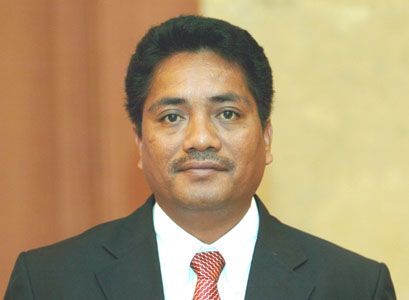
|
||
Above photos L-R: Sudir Mital, India in discussion with Chair Woo; Sergey Samoylov, Uzbekistan; Carlos Lopes Ximenes, Timor-Leste |
||
|
Seoul
Initiative on Environmentally Sustainable Economic
Growth (Green Growth): |
Above photos L-R: Hak-Su Kim, Executive Secretary of ESCAP; Rapporteur Muhammad Zahir Shah, Pakistan and Chair Young-Woo Park . |
||
|
In
the closing plenary, delegates considered the
draft report of the meeting (E/ESCAP/SO/MCED(05)/Rep),
which contains three annexes: draft Ministerial
Declaration on Environment and Development,
Regional Implementation Plan for Sustainable
Development in Asia and the Pacific, 2006-2010,
and Seoul Initiative on Environmentally
Sustainable Economic Growth (Green Growth). With a
number of minor amendments, delegates adopted the
report and agreed to submit it to MCED 2005 for
its consideration and adoption. In
his closing remarks, Hak-Su Kim, Executive
Secretary of ESCAP, commended the meeting for
achieving its objectives by identifying progress
and gaps in the area of green growth and
sustainable production and consumption patterns. Chair Young-Woo
Park closed the meeting at 6:45 pm. |
|
Above photos L-R: Hak-Su Kim, Executive Secretary of ESCAP congratulates Rapporteur Muhammad Zahir Shah, Pakistan and Chair Young- Woo Park . |
|
The
Forum continued discussions in a session on
Towards Corporate Responsibility for Environmental
Management. Myung-Ja Kim, Republic of Korea, made
the following recommendations: formulating
coherent environmental management strategies;
re-designing corporations' organizational setup
for more effective environmental management;
setting up cleaner production and recovery and
recycling systems; establishing a sound evaluation
system for environmental performance; promoting
green marketing and purchasing; and environmental
accounting. |
| Above photos L-R: Delegates from the Private Sector who presented in today's Forum session include Sei-Hun Ion, Jung-Hwa Lee, and Young-Kee Kim |
|
Samsung SDI, LG Electronics and Korea
Electric Power Corporation introduced their
activities, in particular: green purchasing;
environmentally friendly auditing and
environmental accounting; environmental
performance assessment; ISO 14000 certification;
installing environmentally friendly facilities;
developing eco-friendly technologies and products;
and operating eco-friendly recycling facilities
and recovery systems for wastes. |
| EMINENT ENVIRONMENTAL ECONOMISTS SYMPOSIUM: PURSUING GREEN GROWTH IN ASIA AND THE PACIFIC: |
 |
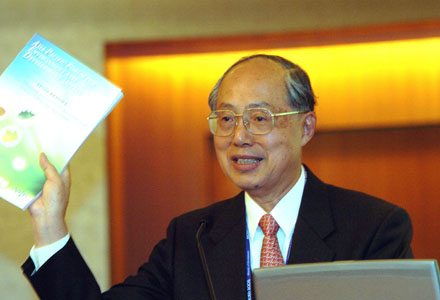 |
||
| Above photos L-R: Environmental Economists who presented during the symposium include David McCauley, Hyun-Hoon Lee, Tanja Srebotnjak, Akio Morishima. | |||
|
The Forum, co-organized by Kangwon
National University, Korean Association of Public
Finance and Economics, and ESCAP, was opened by Hak-Su
Kim, Executive Secretary of ESCAP. Session
1 on cooperation among sectors for eco-efficiency
comprised presentations on: economic development and
environment in Asia; achieving environmentally
sustainable economic growth in Asia; and programs for
ensuring that Asia-Pacific economic growth is
environmentally sustainable. Session
2 on application of indicators to analysis
of environmental sustainability comprised presentations
on: analysis of the Environmental Sustainability Index
as a tool for environmental policymaking; the
relationship between economic growth and environmental
sustainability; and sustainable development indicators
for Thailand. |
| Above photos L-R: Environmental Economists who presented during the symposium Rae Kwon Chung, Jong Ho Hong, and Olivia la O' Castillo | ||
|
Session
3 on measurement of costs and benefits of
sustainable development comprised presentations
on: making markets work for sustainable
development; achieving green growth and the role
of economics; and conflicts in pursuing green
growth. Session
4 on
accounting for environmental costs and benefits
comprised presentations on: the importance of
market signals in sustainable production and
consumption (SPC); the value of nature in economic
growth; and corporate programs for sustainability.
Session 5 on environmental influences on decisions and costs in companies and societies comprised presentations on: the effects of SPC on pursuit of green growth; environmental regulation effects on competitiveness; and a regional cooperative approach for sustainable development in Asia. |
| Related Links |
|
|


